第207章
After this convention Therimenes handed over the fleet to Astyochus, sailed off in a small boat, and was lost. The Athenian armament had now crossed over from Lesbos to Chios, and being master by sea and land began to fortify Delphinium, a place naturally strong on the land side, provided with more than one harbour, and also not far from the city of Chios. Meanwhile the Chians remained inactive. Already defeated in so many battles, they were now also at discord among themselves; the execution of the party of Tydeus, son of Ion, by Pedaritus upon the charge of Atticism, followed by the forcible imposition of an oligarchy upon the rest of the city, having made them suspicious of one another; and they therefore thought neither themselves not the mercenaries under Pedaritus a match for the enemy. They sent, however, to Miletus to beg Astyochus to assist them, which he refused to do, and was accordingly denounced at Lacedaemon by Pedaritus as a traitor. Such was the state of the Athenian affairs at Chios; while their fleet at Samos kept sailing out against the enemy in Miletus, until they found that he would not accept their challenge, and then retired again to Samos and remained quiet.
In the same winter the twenty-seven ships equipped by the Lacedaemonians for Pharnabazus through the agency of the Megarian Calligeitus, and the Cyzicene Timagoras, put out from Peloponnese and sailed for Ionia about the time of the solstice, under the command of Antisthenes, a Spartan. With them the Lacedaemonians also sent eleven Spartans as advisers to Astyochus; Lichas, son of Arcesilaus, being among the number. Arrived at Miletus, their orders were to aid in generally superintending the good conduct of the war; to send off the above ships or a greater or less number to the Hellespont to Pharnabazus, if they thought proper, appointing Clearchus, son of Ramphias, who sailed with them, to the command; and further, if they thought proper, to make Antisthenes admiral, dismissing Astyochus, whom the letters of Pedaritus had caused to be regarded with suspicion. Sailing accordingly from Malea across the open sea, the squadron touched at Melos and there fell in with ten Athenian ships, three of which they took empty and burned. After this, being afraid that the Athenian vessels escaped from Melos might, as they in fact did, give information of their approach to the Athenians at Samos, they sailed to Crete, and having lengthened their voyage by way of precaution made land at Caunus in Asia, from whence considering themselves in safety they sent a message to the fleet at Miletus for a convoy along the coast.